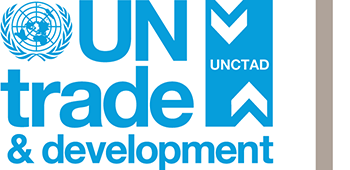
The United Nations Conference on Trade and development (UNCTAD) and the Economic Commission for Latin America and the Caribbean (ECLAC) will host a workshop entitled: “The role of innovative financing instruments to build forward better in Latin America and the Caribbean " which will take place virtually on the 19h and 20th of May.
In the aftermath to the Global Financial Crisis (GFC) (2008-2009) the external financing needs of Latin America and the Caribbean (LAC) have significantly expanded. Between 2010 and 2020 these increased from US$ 279 to 643 billion dollars reflecting a process of external debt accumulation that has occurred in all developing regions since the end of the GFC. Within the developing world, Latin America and the Caribbean is the most indebted region, and exhibits the highest debt service ratio. Between 2010 and 2019 external debt as percentage of exports of goods and services in the cases of Asia, Latin America and the Caribbean, Middle East and Central Asia and Sub-Saharan Africa increased from 60% to 87%, 132% to 192%, 75% to 126% and from 75% to 174% respectively.
LAC’s debt profile makes the region highly vulnerable to changes in international lending conditions and to perceptions of risk in issuing countries, increasing their volatility, and making them more liable to sudden reversals. This context has placed a major constraint on government responses to confront the urgency of COVID-19 and, in the medium-term, undermines their capacity to build forward better.
This workshop focuses on two proposals to address these challenges: (i) expanding and redistributing liquidity from developed to developing countries through innovative uses of Special Drawing Rights (SDRs); (ii) expanding the set of innovative instruments aimed at increasing debt repayment capacity and avoiding excessive indebtedness.
The purpose of the workshop is to discuss the potential use and applicability of innovative financing instruments in the Latin American and Caribbean region to bridge the liquidity gap faced by the region and improve its debt sustainability.
The workshop will focus on the use of Special Drawing Rights, State-Contingent Instruments (Hurricane clauses, GDP and Income linked bonds), and a proposal for a multilateral credit rating agency. It will also address the role of development banks in innovative finance and the relationship between international capital flows and productive development. The workshop will analyze the strengths, weaknesses and implementation challenges of these financing instruments and lessons learned from previous use cases.
The seminar will bring together the experience of financing for development practitioners, academics, finance, and macroeconomic experts, as well as officials from UNCTAD, ECLAC, and also the United Nations Regional Commissions for East Asia and Pacific (ESCAP) and Africa (ECA).
For more information, please see the Concept Note and Agenda under Documents.
Learn more about the outcomes of the workshop here
